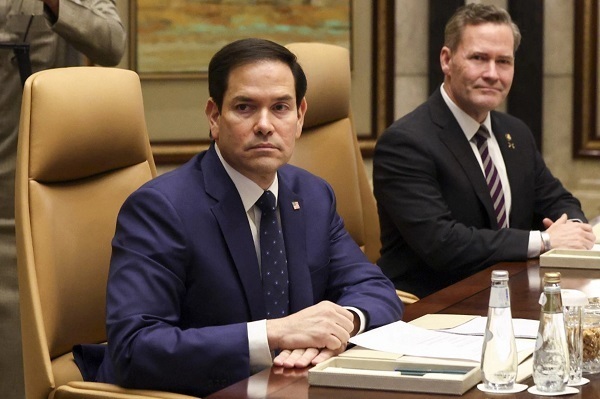
According to the Tabnak, After the begnning of the nuclear negotiations and selection of "Steve Witkoff" as the Trump administration's representative, the moderate faction in the Trump administration was assessed as having won over the extremists. Holding three rounds of negotiations shows that the Trump administration's hardline team's demand for a military strike and complete dismantling of Iran's nuclear program is marginalized.
This choice is, of course, because Iran had declared that the “Libya model” is something that Americans should dream of. Regarding the US senator’s statement that the president of the US would prefer an agreement with Iran similar to the agreement Washington reached with Libya in 2003, Iranian Foreign Minister Abbas Araqchi clarified, “Unless they dream of it.”
Given these realities, US President Donald Trump said between the first round (April 13, Muscat, Oman) and the second round (April 20, Rome, Italy) of negotiations with Iran, "I don't want to harm them (Iran), but Iran cannot have nuclear weapons. We are not looking to seize their territory or industries." Accordingly, it became clear that Trump's goal is only to prevent Iran from obtaining nuclear weapons, not to dismantle Iran's nuclear industry.
In a very clear change in his stance, Steve Witkoff had announced on Tuesday that Iran should not have a uranium enrichment program. He had said that the agreement would be made if Iran destroyed its enrichment facilities.
This was while “Steve Witkoff” had stated in an interview with Fox News a day earlier, on Monday, April 15, that these talks would focus on two points: verifying the Islamic Republic of Iran’s nuclear program and its military dimensions. “The main axis of the talks is to examine the amount and type of enrichment, but ultimately the issue of weapons will also be examined, including the type of missiles that Iran has stockpiled.”
Abbas Araghchi, in response to comments by American officials on Iran's nuclear program and uranium enrichment, said on Wednesday, April 17, that Iran's right to enrich uranium is non-negotiable and the real positions will be determined at the negotiating table.
However, the hardline faction of the Trump team has not backed down from trying to sabotage the negotiations with Iran. Even the change in Witkoff's position is considered by experts to be pressure from this team on the US negotiating team.
Before the start of the third round of negotiations in Muscat, Oman (May 26), US Secretary of State Marco Rubio, who, along with people such as Trump's national security adviser Mike Waltz, is considered a hardliner (hawk), had said, "Iran can have a peaceful nuclear program. But it must import its enriched material."
Despite Rubio's retreat from previous statements by hardline officials of the Trump administration, including White House national security adviser Mike Waltz, regarding the "complete dismantling of Iran's nuclear facilities," his statements indicate that Washington is seeking to transform Iran's nuclear program into a model similar to the United Arab Emirates' nuclear program.
Based on Iran’s stated position on the enrichment principle, even the shift of the hardline Trump team’s position towards “no enrichment” by Iran should be considered a major obstacle to the negotiations.
In fact, Rubio’s words mean that Iran will not have the right to enrich uranium and Iran’s nuclear program will be limited to nuclear power plants dependent on imported enriched uranium. In fact, this is the “Emirates model” that has been rejected by Ali Shamkhani, an advisor to the Leader of the Islamic Revolution.
In this regard, Richard Nephew, a fellow at the Washington Institute for Near East Policy who worked on anti Iran sanctions during the negotiations on the 2015 nuclear deal at the US State Department, told the Wall Street Journal: “This idea was even raised during the negotiations leading up to the JCPOA. Iran did not accept the dismantling of its uranium enrichment program and suggested that neighboring countries also use Iran’s enriched uranium.”